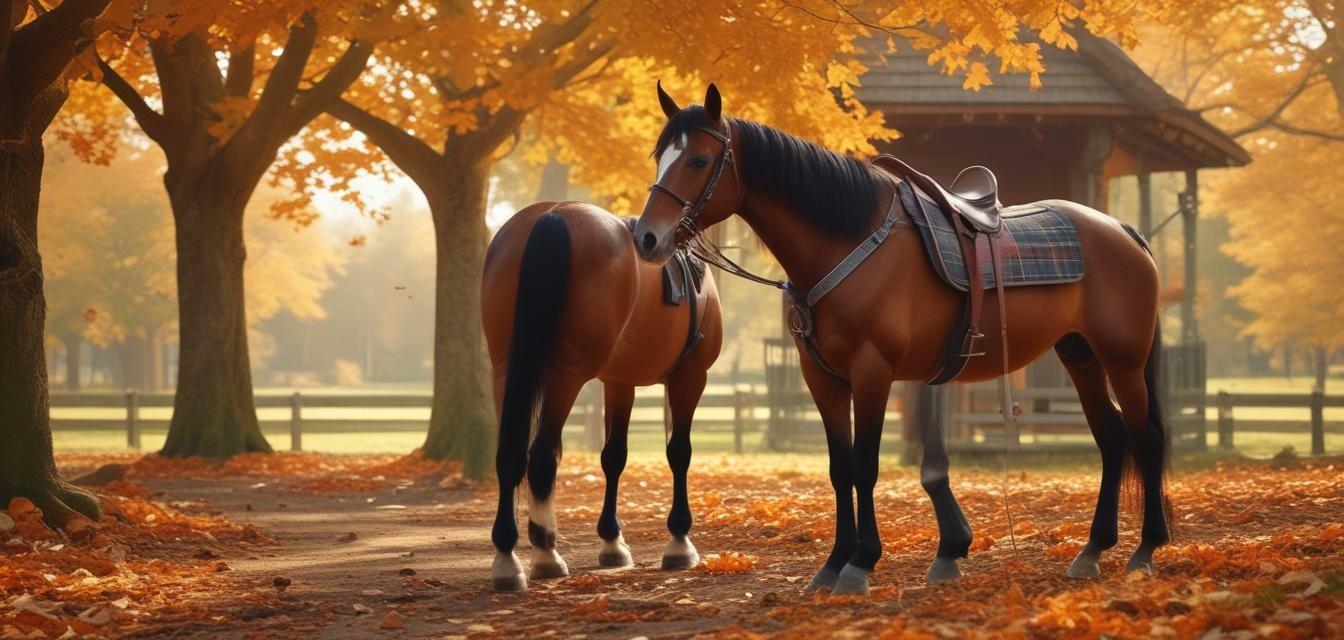
Preparing your horse for a new season
Key Takeaways
- Health assessment is crucial before changing seasons.
- Gradual fitness training helps prepare your horse.
- Choose the right gear for seasonal challenges.
- Nutrition adjustments may be necessary based on weather.
- Regular grooming is essential to maintain horse comfort.
As the seasons change, so should your approach to horse care and preparation. Each season brings its own set of challenges, whether it’s the heat of summer or the chill of winter. Being prepared means ensuring your horse is healthy, fit, and equipped with the right gear for optimal performance. In this article, we will explore essential tips to make your seasonal transition smoother.
1. Seasonal health assessment
The first step in preparing your horse for a new season is a thorough health assessment. Evaluate your horse's health to pinpoint any adjustments that might be needed as the seasons change. Here’s what to consider:
- Check for any signs of discomfort or illness.
- Consult with your veterinarian for seasonal vaccinations.
- Inspect your horse's tack and gear for wear and tear.
Veterinary check-ups
Regular veterinary check-ups can help catch any potential issues early. This is especially important before entering a new season where your horse will be more active.
2. Gradual fitness training
Just like humans, horses need to gradually build their strength and stamina for the upcoming challenges. Implementing a fitness program will help ensure that your horse is ready to tackle whatever the new season has in store.
| Fitness Activity | Frequency | Duration |
|---|---|---|
| Walking on trails | 3 times a week | 30 minutes |
| Trotting exercises | 2 times a week | 20–30 minutes |
| Jumping sessions | 1 time a week | 30 minutes |
Make sure to adjust the intensity of the workouts based on your horse's current fitness level.
Monitoring progress
Keep track of your horse's progress to ensure they are responding well to the fitness program. Take notes of how they perform during exercises so you can adjust their training as needed.
3. Choosing the right gear
Your horse's comfort and safety significantly depend on the right gear. As seasons change, so do gear requirements. Here are some essential gear considerations:
- Use breathable materials in summer and insulated fabrics in winter.
- Ensure saddles and bridles are well-fitted and checked for wear.
- Utilize blankets and sheets according to temperature changes.
Updating riding apparel
Your own riding apparel is also essential. Consider investing in quality riding apparel that suits the new season's conditions.
Pros
- Helps maintain horse health.
- Improves performance with proper fitness.
- Enhances comfort with suitable gear.
Cons
- Requires time and commitment.
- May involve additional costs for gear and veterinary care.
4. Nutrition adjustments
As the weather changes, your horse's nutritional needs may also change. Be mindful of these key points:
- Increase forage intake in colder months.
- Adjust feed concentrate based on activity levels.
- Ensure fresh water is always available, especially in summer.
Consult with a nutritionist
If you're unsure about the right diet for your horse, consult with a horse nutritionist for personalized advice.
5. Regular grooming
Finally, regular grooming is essential throughout the year but requires special attention during seasonal transitions. Here's what you need to keep in mind:
- Brush to remove dirt and debris, especially after workouts.
- Check for skin irritations and inform your vet if needed.
- Consider using fly sprays or blankets in summer.
Establishing a grooming routine
Establishing a consistent grooming routine will help you build a stronger bond with your horse and ensure they remain comfortable throughout seasonal changes.
Conclusion
Preparing your horse for a new season is an essential part of being a responsible equestrian. By focusing on health assessments, fitness training, the right gear, nutritional adjustments, and grooming, you can ensure your horse is ready to face the challenges ahead. Embrace the transitions and make this new season a great one for both you and your horse!
For more tips and advice on riding practices, check out our Rider Tips and Advice blog section!
